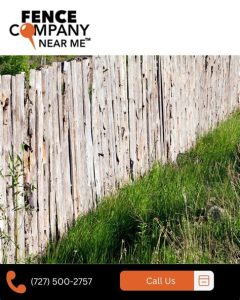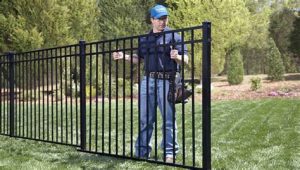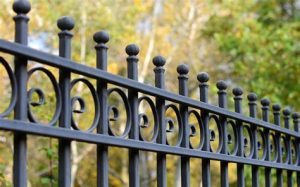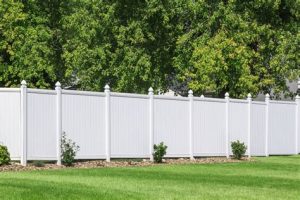Discover how rain affects fence installation, including its advantages, challenges, material impact, and tips for successful projects in wet conditions.Installing a fence can be a significant home improvement project, but what happens when the weather doesn’t cooperate? Rainy days may present unique challenges and considerations when it comes to fence installation. While many homeowners might prefer to wait for sunny skies, there are several advantages to braving the elements. From quicker project timelines to specific moisture-related benefits, weather conditions can play a crucial role. However, there are also considerable hurdles to overcome, such as muddy grounds and the risk of damaging materials. In this blog post, we’ll explore the pros and cons of installing fences in the rain, examining the impact of weather on your project and offering practical tips to ensure successful installation, regardless of the forecast. Whether you’re ready to tackle the task or still weighing your options, understanding these factors will help you make the best decision for your fencing needs.
Impact of rain on fence installation
Installing a fence can be a significant home improvement project, and many homeowners may wonder how rain affects the installation process. The impact of rain on fence installation can vary based on several factors, including the intensity of the rain and the type of materials being used.
Firstly, when the ground is wet, it can become more difficult to dig post holes. This is especially true in areas prone to flooding or heavy rainfall, where the soil may become muddy and unstable. As a result, achieving a level foundation for the fence may be challenging, leading to potential structural issues later on.
On a positive note, some contractors believe that installing a fence during light rain can help with compaction of the soil around the fence posts. This can sometimes lead to a more stable installation.
Advantages of installing fences in the rain
Installing a fence in the rain may seem counterintuitive, but there are several advantages that homeowners should consider. One of the most significant benefits is that the moisture in the soil can actually help optimize the installation process. When the ground is wet, it is often softer and easier to dig post holes. This can reduce the labor required to prepare the site and lead to a more efficient installation.
Another advantage is the potential for improved settling of fence posts. When posts are set in wet soil, they tend to settle more firmly than they do in dry conditions. This can result in a more stable fence in the long run, as proper settling is crucial for maintaining the integrity of the structure.
Additionally, installing a fence during rainy weather can lead to reduced competition for contractors. During dry spells, demand for fencing professionals often surges, causing delays and higher costs.
Challenges of installing fences in the rain
Installing a fence can be a challenging task on any day, but doing so in the rain presents a unique set of complications. One of the primary challenges is the installing process itself; wet soil can become overly saturated, making it difficult to dig holes for fence posts. This can lead to inadequate support, compromising the structural integrity of the fence.
Another challenge involves the tools and materials used during installation. Many fencing materials, especially wood, can warp or swell when exposed to moisture. This can affect the overall appearance and durability of the fence, leading to potential repairs or replacements in the future. Additionally, metal components may rust if exposed to prolonged dampness, further complicating maintenance efforts.
Furthermore, rain can also create visibility issues. Wet and muddy conditions can make it difficult to see markers or boundaries clearly, leading to potential misalignments in the installation process.
Effect of rain on fence materials
When considering the installation of fences, one cannot overlook the effect of rain on fence materials. Rain can significantly influence the integrity and longevity of different materials used in fencing. Some materials may react adversely to moisture, leading to long-term consequences for the fence’s durability.
Wooden fences are particularly susceptible to rain. Prolonged exposure to moisture can result in wood rot, mold growth, and even warping. To counter these effects, it’s advisable to use treated wood to enhance its resistance to rain and humidity. Moreover, applying a high-quality sealant can further protect wooden materials.
On the other hand, vinyl and metal fences generally withstand rain better than wood. Vinyl is often waterproof and resistant to fading, while metal can develop rust if not properly coated. However, when installing these types of fences, it’s crucial to ensure that all components are assembled correctly to prevent trapping water, which can lead to corrosion over time.
| Material | Effect of Rain | Recommendation |
|---|---|---|
| Wood | Can rot, warp or develop mold | Use treated wood and sealants |
| Vinyl | Waterproof, resistant to fading | No special treatment needed |
| Metal | Can rust without proper coating | Ensure proper assembly; use rust-resistant paint |
Understanding the impact of rain on different fence materials can help homeowners make informed decisions.
Tips for successful fence installation in the rain
Installing a fence in the rain can be challenging, but with the right preparation and techniques, it can be done successfully. Here are some essential tips for achieving a successful fence installation even during wet conditions.
1. Choose the Right Materials: It’s crucial to select fence materials that can withstand moisture. Composite and PVC materials are often more resistant to water damage compared to traditional wood. Additionally, ensure that any screws or nails used are rust-resistant.
2. Prepare the Site: Before starting the installation, clear the area of any debris and assess the ground conditions. If the soil is too muddy, it may be wise to delay the installation. However, if you choose to proceed, using a drainage system or placing gravel at the base of the posts can help prevent standing water.
3. Keep Safety First: Wet conditions can create slippery surfaces. Make sure to wear appropriate footwear and take extra precautions to avoid slips and falls while working. If winds accompany the rain, be cautious about handling large panels or equipment.
4. Work with a Partner: Having a buddy to assist during the installation can make the process smoother. One person can focus on securing posts while the other handles the panels, which can provide more control and reduce risks of accidents.
5. Monitor Weather Conditions: Keep an eye on local weather updates. If there are forecasts for heavy rain or storms, it might be best to postpone the installation. However, occasional showers shouldn’t deter you if you’ve taken necessary precautions.
By following these tips, you can ensure a safer and more effective fence installation process, regardless of the weather conditions.
Frequently Asked Questions
What are the main advantages of installing fences in the rain?
One advantage of installing fences in the rain is that the ground may be softer, making it easier to dig holes for posts. Additionally, the rain can help settle the soil around the posts, which may enhance stability once the fence is installed.
What are the potential disadvantages of installing fences in wet conditions?
The main disadvantage of installing fences in the rain is that wet soil can lead to instability in the fence posts if not properly secured. Furthermore, rain can cause delays in the curing process of concrete used to set the posts.
How can wet conditions affect the materials used for fencing?
Wet conditions can affect certain materials, such as wood, which may absorb moisture and warp or rot over time. Additionally, metal fences may develop rust if not properly treated and protected.
Is it safe to install fences during heavy rain?
Installing fences during heavy rain is not advisable, as poor visibility and slippery conditions can pose safety risks for workers. It’s best to wait for lighter rain or clearer weather.
What types of fencing are more suitable for wet conditions?
Vinyl and metal fences tend to be more suitable for wet conditions compared to wood, as they are less susceptible to water damage and rust. Composite materials can also offer durability in rainy environments.
How does rain affect the leveling of fence posts?
Rain can cause the soil to shift, making it more difficult to achieve proper leveling of fence posts. It’s important to check for level frequently during installation in wet conditions to ensure the fence remains straight and stable.
What precautions should be taken when installing fences in the rain?
Precautions include using pressure-treated wood, ensuring proper drainage around the posts, and allowing additional time for the concrete to set. It’s also wise to monitor weather conditions closely and suspend work if heavy rain is expected.





